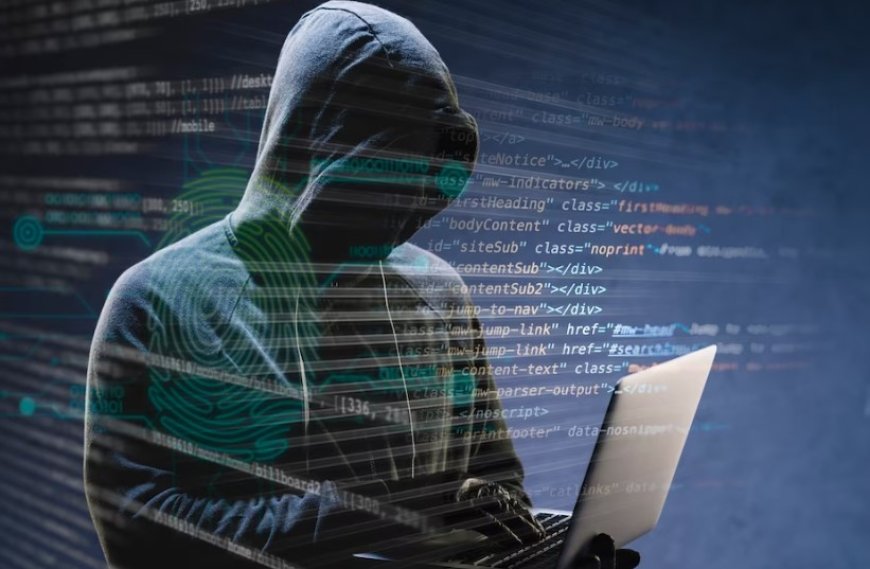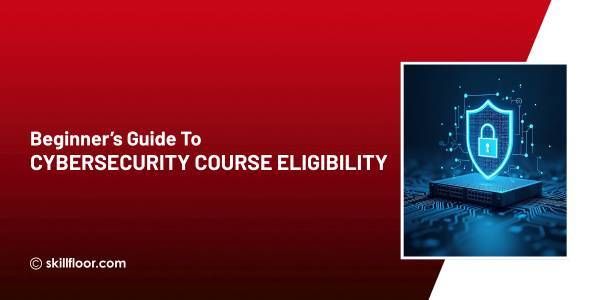Ethical Hacking & Cybersecurity: Protecting the Digital Realm
Protecting the digital realm: Explore the future of ethical hacking and cybersecurity in data science.

In today's interconnected world, where technology plays a pivotal role in our daily lives, the need for robust cybersecurity measures is more critical than ever. With the growing threat of cyber attacks and data breaches, organizations and individuals alike are seeking ways to protect themselves from malicious actors. One approach that has gained significant attention is ethical hacking, a practice that focuses on identifying vulnerabilities and strengthening security systems. In this blog, we will explore the fascinating realm of ethical hacking and cybersecurity, understanding their significance, and how they work hand in hand to protect our digital assets and ensure a secure online environment. So, let's embark on this journey of discovery and unravel the world of ethical hacking and cybersecurity.
The Importance of Cybersecurity
In our interconnected world, where sensitive information is stored and transmitted digitally, cybersecurity plays a critical role in ensuring the integrity, confidentiality, and availability of data. Cyber attacks can result in financial losses, reputational damage, and even compromise national security. As technology advances, so do the tactics and techniques employed by malicious actors. This necessitates a proactive and comprehensive approach to cybersecurity.
Ethical Hacking: An Overview
Ethical hacking, also known as penetration testing or white-hat hacking, is a practice that involves authorized individuals testing the security of computer systems, networks, or applications. Unlike malicious hackers, ethical hackers operate with the permission of the system owner, aiming to identify vulnerabilities and weaknesses before they can be exploited by cybercriminals. Ethical hacking serves as a proactive measure to enhance the security posture of organizations.
The Role of Ethical Hackers
Ethical hackers, also known as cybersecurity professionals or penetration testers, play a crucial role in safeguarding digital systems. Their primary objective is to identify vulnerabilities and weaknesses in networks, applications, and infrastructure. By simulating real-world attacks, ethical hackers help organizations understand their security gaps and develop effective countermeasures. They employ a variety of tools, techniques, and methodologies to uncover vulnerabilities and provide recommendations for improvement.
Cybersecurity: A Multi-Faceted Approach
Cybersecurity is a broad discipline that encompasses various practices and measures aimed at protecting digital systems. It involves a multi-faceted approach that includes network security, application security, data protection, incident response, and more. Cybersecurity professionals work diligently to create layers of defense, employing firewalls, antivirus software, intrusion detection systems, encryption, and other technologies to mitigate risks. They also focus on security awareness and education to ensure that individuals within an organization are knowledgeable about best practices and potential threats.
The Synergy between Ethical Hacking and Cybersecurity
Ethical hacking and cybersecurity are intrinsically connected, working in harmony to create a robust defense against cyber threats. Ethical hackers act as a critical component of a comprehensive cybersecurity strategy. By conducting vulnerability assessments and penetration testing, they help identify weaknesses and enable organizations to fortify their defenses. The insights gained from ethical hacking activities are invaluable in enhancing the overall security posture.
Understanding the Ethical Implications
While ethical hacking serves a noble purpose of strengthening security, it is crucial to address the ethical implications associated with this practice. Ethical hackers must operate within legal and ethical boundaries, ensuring that their actions are authorized and justified. They must respect privacy rights, confidentiality, and data protection regulations. Additionally, ethical hackers have a responsibility to disclose any vulnerabilities they discover to the relevant parties, allowing them to address and remediate the issues.
The Evolving Landscape of Cyber Threats
As technology advances, so do the cyber threats that organizations and individuals face. New vulnerabilities are discovered, and innovative attack techniques emerge. This dynamic landscape necessitates a continuous learning and adaptation process for both ethical hackers and cybersecurity professionals. Staying updated with the latest trends and developments in the cybersecurity field is essential to effectively counter emerging threats.
Collaboration and Knowledge Sharing
Ethical hacking and cybersecurity are not solitary endeavors. Collaboration and knowledge sharing play a significant role in advancing the field. Cybersecurity professionals participate in forums, conferences, and communities to exchange insights, share best practices, and collectively address emerging challenges. By fostering a culture of collaboration, the cybersecurity community can collectively stay ahead of cybercriminals and better protect organizations and individuals.
The Future of Ethical Hacking and Cybersecurity
As technology continues to evolve at a rapid pace, the future of ethical hacking and cybersecurity holds immense possibilities. Advancements in artificial intelligence and machine learning can be leveraged to enhance threat detection and response capabilities. The rise of Internet of Things (IoT) devices introduces new challenges and opportunities in securing interconnected systems. Moreover, the integration of blockchain technology and the increasing adoption of cloud computing require robust security measures.
As we conclude our exploration of the fascinating world of ethical hacking and cybersecurity, we have gained insights into the importance of ethical hacking in identifying vulnerabilities and fortifying digital defenses. We have also understood the ethical implications associated with this practice and the need for responsible and authorized actions.
The evolving landscape of cyber threats reminds us that cybersecurity is an ongoing battle. It requires continuous learning, staying updated with the latest trends, and adapting to emerging challenges. By embracing a collaborative mindset and actively participating in knowledge sharing platforms, we can collectively enhance our cybersecurity practices and protect against evolving threats.
Looking ahead, the future of ethical hacking and cybersecurity is promising. As technology advances, new opportunities and challenges will arise. The integration of artificial intelligence, blockchain, and IoT devices will require innovative approaches to secure our interconnected systems. By leveraging these technologies, ethical hackers and cybersecurity professionals can develop more sophisticated defense mechanisms and proactive threat detection systems ethical hacking and cybersecurity are vital components of today's digital landscape. Ethical hacking serves as a valuable tool to identify vulnerabilities, strengthen security measures, and protect against malicious attacks. It operates within legal and ethical boundaries, emphasizing responsible and authorized actions.
Conmsidering all the facts about, Cybersecurity, on the other hand, encompasses a broader scope of safeguarding digital assets, defending against threats, and ensuring data privacy and confidentiality. It requires continuous learning, adaptation, and collaboration to keep up with the ever-evolving cyber threat landscape.
The future of ethical hacking and cybersecurity holds immense possibilities with advancements in technology, such as AI, IoT, and blockchain. As the digital world becomes increasingly interconnected, the need for robust security measures becomes paramount.





























































